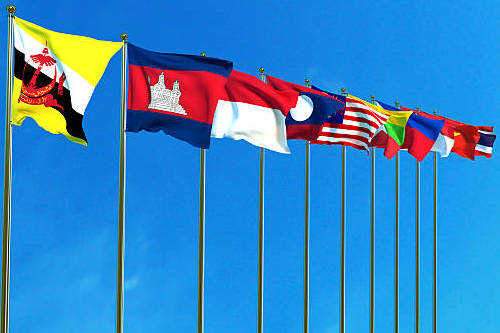
Mar 4, 2014
An opinion piece by International Commission of Jurists’ International legal adviser for Southeast Asia Emerlynne Gil.
When the ASEAN Intergovernmental Commission on Human Rights (AICHR) meets in Jakarta this week, its urgent priority must be improving how it communicates and engages with civil society in Southeast Asia and responds to human rights issues.
ASEAN civil society, representing more than 500 million people from the region, has signaled its eagerness to harness the potential of the AICHR. But the Commission has been widely criticized as being “toothless” and lacking a clear mandate since its creation in 2009.
Human rights issues among its member states need to be prioritized and addressed.
While some member states, including Indonesia and the Philippines have shown a degree of willingness to address them, others have not been so forthcoming.
AICHR is the regional human rights body composed of government representatives from all ASEAN Member States.
At its last meeting (its 14th official meeting since its inception in 2009) the AICHR discussed a set of draft guidelines on its relations with civil society organizations, intended to improve the way the AICHR communicates and engages with civil society. But no deadline or target date has been set — or at least made public — for the finalization and adoption of these guidelines.
AICHR’s founding terms of reference failed to establish a formal procedure for engagement with civil society, and none was set up during AICHR’s initial meetings.
This is unacceptable.
Some commissioners met in their personal capacity with civil society organizations in their own countries because they understand the importance of engagement with civil society and the principles of participation and transparency.
But not all commissioners feel this way, and even those who do are constrained from expressing their views, lest they be criticized or even reprimanded by their colleagues.
Significantly, AICHR commissioners are not independent human rights experts. They are representatives of Member States, who have to answer to their respective State authorities.
The AICHR’s method of dealing with civil society too often reflects the system of patronage that is deep-rooted in many Southeast Asian countries.
The most favored groups; typically those who are not too critical of the AICHR, are given the privilege to take a peek into the workings of the AICHR and are invited to consultations and meetings.
These “favored ones”, in turn, hesitate to relay information to others or refrain from sounding too critical of the AICHR in order to maintain their position.
This creates divisions and hierarchies within the human rights movement in the region, which is regrettable and contrary to AICHR’s stated aim “to further contribute to the development of the ASEAN community post-2015”.
The failure to engage meaningfully with regional civil society has seriously hampered AICHR’s ability to provide institutional responses to key human rights issues in the region, including human rights crises in member states.
AICHR commissioners who are more open to engaging with civil society are criticized by their colleagues who see these responses as “unauthorized”.
The attempt of some commissioners to discuss key human rights issues in the region are often shot down by their less independent colleagues as “an interference in the internal affairs” of ASEAN States.
In January 2013, the International Commission of Jurists (ICJ), in a public statement, pointed out to the AICHR that it is within its Terms of Reference (ToR) to discuss the enforced disappearance of Sombath Somphone, a prominent social development advocate from Lao People’s Democratic Republic (PDR). The ICJ pointed to paragraph 4.11 of the ToR, under which the AICHR should “develop common approaches and positions on human rights matters of interest to the ASEAN”.
During a workshop held by the Working Group for an ASEAN Human Rights Mechanism held in Bangkok in June 2013, the ICJ reiterated to the AICHR commissioners that the enforced disappearance of Somphone and others must be discussed as a matter of urgency. Enforced disappearances constitute gross human rights violations and crimes under international law.
Ambassador Rosario Manalo, from the Philippines, replied that the commissioner from Lao PDR should respond to ICJ’s query. But the Lao PDR commissioner invoked the principle of non-interference, saying the Lao PDR government considered the issue as meddling in its internal affairs.
The issue of enforced disappearances should be a matter of vital importance to ASEAN Member States, including the Philippines, Thailand, and Indonesia, which have experienced a number of cases. Interestingly, the commissioners of these three countries were the ones most open to discussing in the AICHR the issue of enforced disappearances.
The AICHR must adopt formal guidelines for engagement with civil society that allows for open, transparent and meaningful engagement.
However, such guidelines alone will not be enough, as commissioners representing particular ASEAN Member State will likely shoot down any proposal to discuss important human rights issues by invoking the non-interference principle. This is contrary both to objects of the AICHR and the pledge made by all states as far back as the Vienna World Conference on Human Rights in 1993, when the universality and universal interest of human rights were affirmed.
Until all ASEAN member states make a firm commitment to addressing human rights issues, the AICHR will continue to attract criticism that it lacks credibility and the ability to effectively engage in addressing serious human rights issues in Southeast Asia.
Next year’s formation of the ASEAN Economic Community, which will formally integrate its nations, cannot be based solely on competitive economic, business and trade interests. The human rights of its citizens need to be maintained and civil society given a voice. Otherwise, the AEC will face serious international criticism.
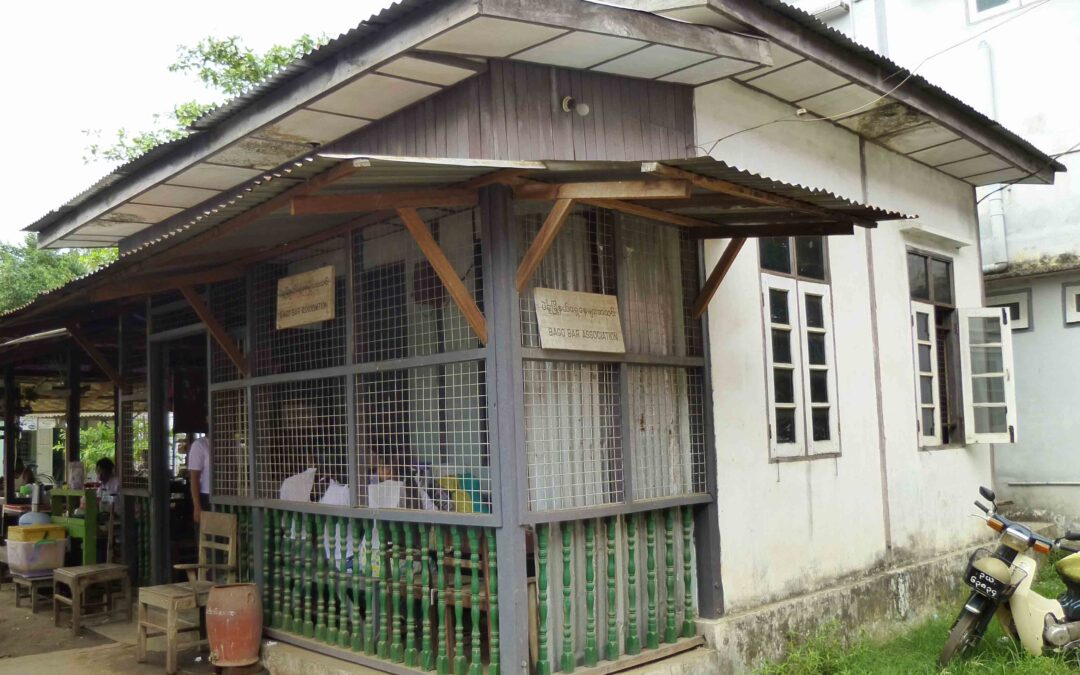
Feb 27, 2014
“Everybody talks about the rule of law but they don’t talk about how to support the judicial system to provide the rule of law…”
An opinion piece by Sam Zarifi, ICJ’s Asia-Pacific Regional Director.
“Everybody talks about the rule of law but they don’t talk about how to support the judicial system to provide the rule of law,” a senior member of Myanmar’s judiciary told the International Commission of Jurists during a meeting in the capital Naypyitaw recently.
Four decades of brutal authoritarian rule systematically weakened the independence and integrity of the legal system. With reforms underway, judges in Myanmar are facing demands to provide justice, accountability, and stability — virtually overnight.
But the Myanmar judiciary simply does not have the resources to meet this demand at present.
As the country prepares for a groundbreaking general election next year, it is important for all political parties and candidates to make clear how they would strengthen the judiciary’s ability to carry out its responsibilities.
It is also crucial for the international community to provide all the help it can.
Everyone in the so-called New Myanmar is calling for the rule of law, including President Thein Sein, opposition leader Aung San Suu Kyi – who is Chair of the Parliamentary Rule of Law and Tranquility Committee — ethnic and religious minority groups, civil society and businesspeople.
But ‘rule of law’ evidently means different things to different people.
Some in Myanmar seem to equate it with ‘greater security.’ Others in Myanmar view rule of law as important for different reasons as the country proceeds down the rocky path of reforms: law and order; economic growth and development; fighting corruption; and fostering good governance.
What is clear is that strengthening the rule of law, regardless of why people invoke the concept, requires an independent judiciary. Whether it’s for fighting corruption, fostering good governance or attracting foreign investment, Myanmar needs judges and lawyers who are able to operate independently and impartially to provide proper jurisprudence and, importantly, change the public’s poor perception of the system.
But a crucial point to remember is that an independent judiciary is not just an instrument for achieving desired social ends. An independent judiciary is the law.
Article 10 of the Universal Declaration of Human Rights says that everyone is entitled to a fair and public hearing by an independent and impartial tribunal. The United Nations General Assembly has for its part unanimously affirmed that ‘human rights, the rule of law and democracy are interlinked and mutually reinforcing’.
International laws and standards also state that governments must prioritize the provision of sufficient resources to ensure the judiciary’s ability to provide independent and impartial tribunals.
Myanmar’s judiciary desperately needs these resources.
Many courthouses lack the most basic facilities. Some are too small to accommodate public audiences, despite the 2008 Constitution guaranteeing the right to a public trial.
At present, judges in Myanmar do not have full access to the necessary cases, laws and international standards.
Furthermore, they are underpaid and treated as basic civil servants instead of as an independent and equal branch of government.
And those in remote areas still face pressure from the military, government officials and powerful local interests.
In its December report “Right To Counsel: The independence of lawyers in Myanmar”, the ICJ found that corruption, which is widespread in almost every sector of the country, also plagues the legal system. Significantly, it also erodes the public’s perception of judicial integrity.
Add to this the unprecedented scrutiny and criticism from a newly liberated and emboldened media, and it is easy to understand why Myanmar judges feel that they are being asked to do the impossible.
There is no question—even inside the judiciary—that there is a lot of room for improvement in the recruitment, training, conduct and integrity of the system. To its credit, the Myanmar judiciary is now trying to adapt to its new environment and the increasing demands placed upon it.
But improving the independence of the judiciary and bolstering the rule of law requires a systematic and concerted effort from the entire government and in particular from the powerful Executive and Legislature branches of the administration.
The Executive and Legislature must assist the Judiciary to become a proper, equal branch of government, able to regulate its own affairs and be accountable for satisfying the public’s demands.
Amidst competing clamor for attention, it is crucial for the Myanmar government, and the many international supporters eager now to assist, to ensure that the Judiciary is granted the independence and resources necessary to improve the rule of law in Myanmar.
The task is daunting, the challenges enormous. But this is the only way to strengthen ‘rule of law’ in the evolving ‘New Myanmar’ and improve the dire human rights situation for everyone living in the country.
Burmese language Version can be downloaded in PDF format here.
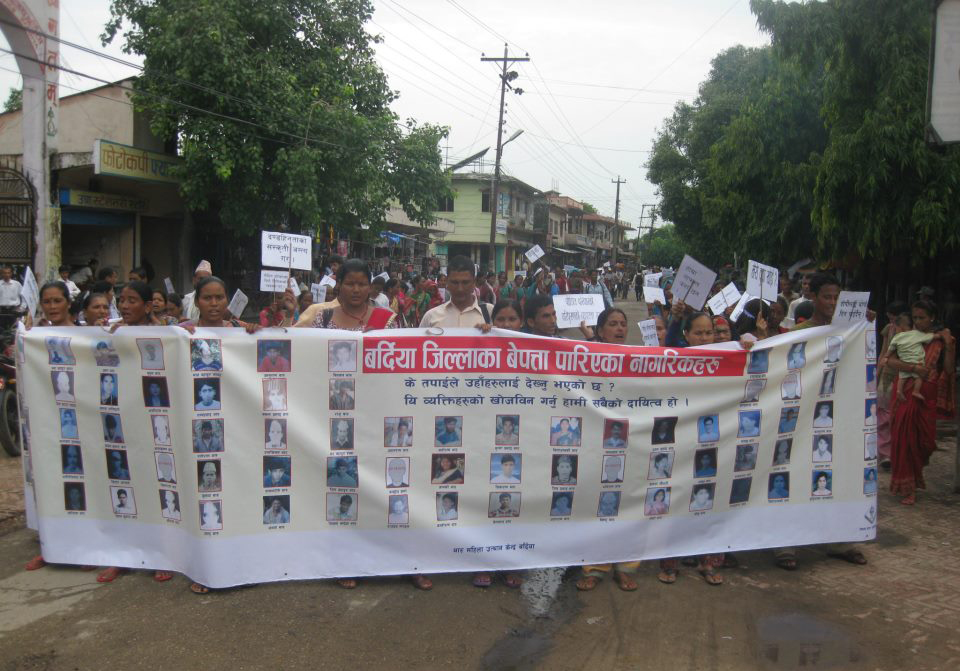
Jan 13, 2014
An opinion piece by Ben Schonveld, Director of ICJ’s South Asia Programme, and Govinda Bandi, an expert in constitutional and international law.
In a landmark decision last week, Nepal’s Supreme Court again demonstrated why it has been the most important bastion of hope for human rights in the country.
The ruling of 2 January struck down an executive Ordinance that represented an attempt by the country’s politicians to institutionalize impunity for the serious human rights violations and crimes of the past two decades.
It also laid down the gauntlet for the country’s political classes: political expediency cannot trump justice and accountability.
The Supreme Court’s ruling should put an end to much of the political argument around reconciliation and impunity.
It recognizes that reconciliation is an important goal in Nepal’s transitional process.
But the ruling also underlines that reconciliation cannot be built on a foundation of impunity for serious crimes and human rights abuses.
Allowing impunity for crimes under international law places certain categories of individuals above the law.
It leaves victims, who have been most affected by the conflict, with only a marginal role in the reconciliation process and in effect forces them to give up their right to justice, truth and reparation.
The case, Madhav Kumar Basnet v the Government of Nepal, was a response to a cynical effort by Nepali politicians to renege on their promise to the Nepali people to provide accountability and justice during the process of transition following the armed conflict.
Taking advantage of the absence of a legislature, an unlikely coalition of parties pushed for a sweeping amnesty from accountability under the misleading title of an Ordinance to establish a Commission of Inquiry on Disappeared Persons, Truth and Reconciliation.
Nepali civil society was not fooled by this benign title, and instead referred to the Ordinance as what it was: an amnesty for the perpetrators of years of human rights abuses.
Despite enormous criticism from a wide range of Nepali civil society and international human rights organizations, including the International Commission of Jurists, a slightly amended Ordinance received Presidential approval on 14 March 2013.
In response, civil society turned to the only branch of government that has sought to uphold the rights of Nepalis.
In a petition brought by a coalition of victims’ groups, with the assistance of the International Commission of Jurists, the Court was asked to consider the following: 1) whether or not the procedures and legal provisions of the Ordinance violated the Constitution, international human rights law and accepted principles of justice, and 2) if implemented in its present form, whether or not the Ordinance would achieve the goals of transitional justice.
In its landmark ruling of 2 January 2014, the Court held: 1) that the Ordinance was an obstacle to transitional justice and 2) that it violated Nepal’s Constitution, international human rights law and was contrary to previous rulings by the Supreme Courts and accepted principles of justice.
The Court also addressed the deficits of the Ordinance, including the absence of supporting legislation, and administrative reform that would be required for a credible transitional justice process.
On Amnesty
The Ordinance purported to give powers to the executive to grant amnesty for crimes under international law.
The Court held that such sweeping amnesties are an obstacle to truth, violate international law and the Court’s own prior decisions.
The court barred amnesty for such crimes, because they allow those suspected of criminal responsibility for crimes under international law, such as enforced disappearance, extrajudicial executions, torture and other ill-treatment, including rape and other sexual violence, to escape justice.
Statute of limitations
With regard to victims’ right to effective remedy, the Court rejected the Ordinance’s provision for a statute of limitations of 35 days for filing cases after the decision of the Commission.
The Court held that such a time limited statute of limitations “will create impunity” for international crimes.
Furthermore, the Court ruled that this limitation provided the Attorney General (AG) with excessive discretion, since any case that the AG was reluctant to pursue could be quashed simply through administrative delay.
On enforced disappearances
The Ordinance amalgamated what had been hitherto envisioned as two separate Commissions, one on truth and one designed to address the specific situation of enforced disappearances.
The Court ruled that a separate Commission of Disappearances was essential. The Court underlined that it had already ruled in the Rabindra Dhakal case that the Government must 1) criminalize the act of enforced disappearance as a continuous crime, not subject to the grant of amnesties; and 2) establish a separate commission, in accordance with international law and standards, to look into cases of enforced disappearance during the conflict.
Making transitional justice work
In addition to striking down sections of the Ordinance that contravened international law, the Constitution and prior rulings, the Court set forth a list of practical measures that need to be addressed to implement any future transitional justice mechanism. These measures include the following:
1) The need to legislate for the criminalization of human rights abuses constituting international crimes in Nepal. Currently enforced disappearance and torture are not criminal acts;
2) The Court also ruled that reparations to victims and their families for such abuses must be provided;
3) It ordered that a witness and victim protection program be established;
4) The Court ordered a vetting standard to ensure the impartiality of the Truth and Reconciliation Commission; and
5) The Court instructed the government to seek assistance from an ‘expert team’ to amend the Ordinance.
Truth as a replacement for justice
The International Commission of Jurists and many of its national and international partners have repeatedly called on Nepal’s past governments to ensure that legislation establishing transitional justice mechanisms – which must not replace judicial proceedings – conform to international standards.
Politicians in Nepal have repeatedly stressed the reverse. The Court has ruled that this debate too is at an end: transitional justice is a complement, not a replacement for criminal law.
Back to the drawing board
Nepal’s new government, once formed, now has to elaborate a substantial new legislation which will address the challenges of justice in transition.
The Court’s ruling has made it very clear that only laws that conform to international standards will be acceptable. And anything that falls below will inevitably be subject to legal challenge.
Yet successive governments have had a very poor record on implementing court judgments.
There remains a powerful resistance to ensuring accountability amongst many key political players, including the powerful military and many amongst the election victors.
This resistance reinforces a pattern of political interference with the criminal justice process and intersects with attempts to tackle corruption.
The extent of their influence can be seen in the weaknesses in the Ordinance that Nepal’s Supreme Court has now rejected.
Justice, truth and reparation for serious human rights violations were key demands of the people’s movement. They remain key demands of the Nepali people.
The Nepali Supreme Court’s decision is a landmark not just for Nepal but also for international law globally.
Is Nepal to be governed by the rule of law or continued political expediency? It is now over to the politicians.
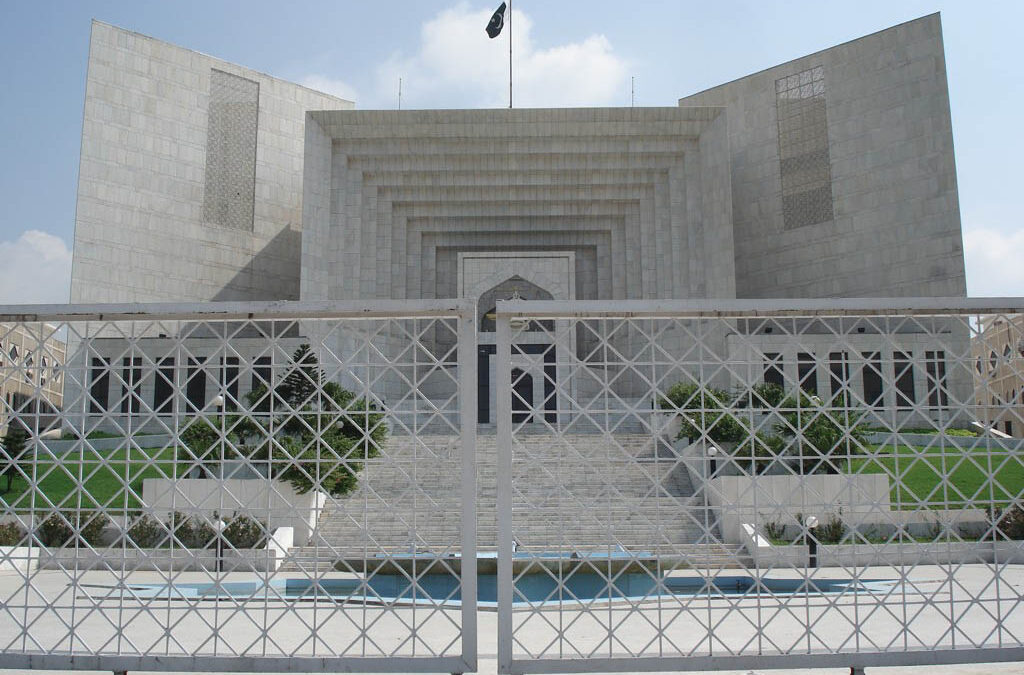
Aug 2, 2013
An opinion piece by Reema Omer, Legal Adviser for the ICJ.
The Attorney General of Pakistan recently informed the Supreme Court that over 500 persons reported to be ‘missing’ were in the custody of security agencies.
This revelation comes after security agencies had for years denied involvement in cases of enforced disappearances in the country.
Three years ago, Pakistan ratified the International Covenant on Civil and Political Rights (ICCPR), undertaking to safeguard the right to life and liberty, including freedom from arbitrary detention, of its people.
Coupled with a newly restored independent Supreme Court committed to defend human rights, many Pakistanis hoped the ratification would help improve Pakistan’s grave human rights situation.
But the expected improvements have not taken place – in fact, in some cases, the human rights situation has deteriorated. This remains true especially for enforced disappearances, which continue with complete impunity.
Time to take the necessary steps
It is now time for the Supreme Court to take the necessary steps to hold those state agencies (and agents) accountable that have subjected hundreds, if not thousands, of Pakistanis to enforced disappearance.
Under international law, enforced disappearance is the arrest, detention, abduction or any other form of deprivation of liberty by State agents or by persons or groups of persons acting with the authorization, support or acquiescence of the State, followed by a ‘refusal to acknowledge the deprivation of liberty or by concealment of the fate or whereabouts of the disappeared person, which place such a person outside the protection of the law.’
The UN General Assembly has repeatedly described enforced disappearance as ‘an offence to human dignity’ and a grave and flagrant violation of human rights and international law.’
Pakistan’s Supreme Court first assumed jurisdiction of enforced disappearances in December 2005 by taking suo motu notice of a news report. Chief Justice Chaudhry acknowledged evidence that many of the ‘disappeared’ were being held in security agencies’ custody and committed to ‘deliberate on the role of agencies and pass a detailed judgment’ at a later stage.
Seven years later, and following many more remarks on the culpability of security agencies, there are still no judgments, prosecutions, or convictions related to the multiple ‘missing persons’ petitions pending in the Supreme Court.
When questioned about the fate of ‘disappeared’ persons, security agencies either deny knowledge, or in blatant defiance of Court orders, resist releasing those found to be in their custody. A primary tool to facilitate enforced disappearance is the Actions (in Aid of Civil Powers) Regulations 2011 (FATA/PATA Regulations), a law that empowers the military to detain suspected militants indefinitely without presenting them before a court.
Suspects are often kept incommunicado, and denied access to family, legal counsel, and human rights groups.
The Supreme Court’s efforts to assume jurisdiction of human rights violations and trace ‘disappeared’ persons are commendable first steps towards combating impunity for enforced disappearances.
Pakistan’s obligations not met
However, these steps alone do not meet Pakistan’s human rights obligations under international law.
Under International law, States are obligated to prevent human rights violations, and undertake prompt, thorough, independent and impartial investigations where violations take place.
The United Nations Impunity Principles specifically require States to ensure ‘that those responsible for serious crimes under international law are prosecuted, tried and duly punished.’ Obligations under international law are binding on all branches of the State – including the judiciary.
Multiple factors allow impunity for enforced disappearances to continue such as a compromised criminal justice system, inadequate witness protection laws, and the absence of civilian oversight of the military.
The executive authorities must discharge their responsibility to conduct prompt, thorough and impartial investigations into allegations of enforced disappearance, with a view both to determining the fate and whereabouts of ‘missing persons’ and prosecuting those responsible.
The Supreme court can play a more effective role
Pakistan’s independent and assertive Supreme Court has done well to trace ‘missing persons’ and seek a comprehensive strategy on enforced disappearances from the Government.
However, it can play a more effective role in ensuring that ‘disappeared’ persons are either released or, if charged with a recognizable crime, receive a fair trial before an independent and impartial civilian court.
They can also ensure perpetrators for enforced disappearances are brought to account and that victims or their families are able to access a remedy and reparation for the human rights violations they have suffered.
First, the Supreme Court could invalidate sections of the FATA/PATA Regulations that are incompatible with Pakistan’s obligations under national and international human rights law.
Recently, the Court declared the Contempt of Court Act 2012, a law that sought to curtail the judiciary’s contempt powers, void in less than two months after it was passed by Parliament.
However, petitions challenging laws decried by human rights organizations for facilitating enforced disappearances have been pending in the Supreme Court for years with little progress.
Second, the Court could direct and supervise criminal investigations, as well as order institution of criminal proceedings against members of security agencies implicated in enforced disappearances.
The Supreme Court has frequently exercised this authority in corruption cases, but has so far not invoked this power effectively to address enforced disappearances and other violations carried out by agencies of the armed forces.
Third, the Supreme Court could use the wide range of contempt powers at its disposal to compel authorities to implement its orders.
In recent years, the Court has used these powers frequently against journalists, lawyers, and even former Prime Minister Gillani, resulting in his disqualification from office. Security agencies, however, have so far escaped such action despite their failure to follow directions of the Court in cases of enforced disappearances.
Source of hope
At a time when public trust in other State institutions is low, the Supreme Court still remains a source of hope for justice for the thousands of ‘disappeared’ persons and their families.
The Court has recognized the seriousness of the situation. However, it would do well to move beyond merely tracing ‘disappeared’ persons to recovering them and holding perpetrators accountable.
This will bring Pakistan closer to meeting its obligations under international law and be instrumental in combating impunity enjoyed by the security forces for their role in perpetrating human rights violations.
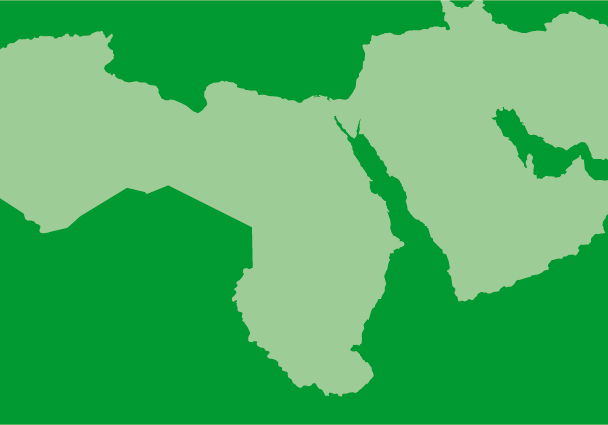
Apr 19, 2013
An opinion editorial by By Ketil Lund, ICJ Commissioner, former Supreme Court Judge of Norway









